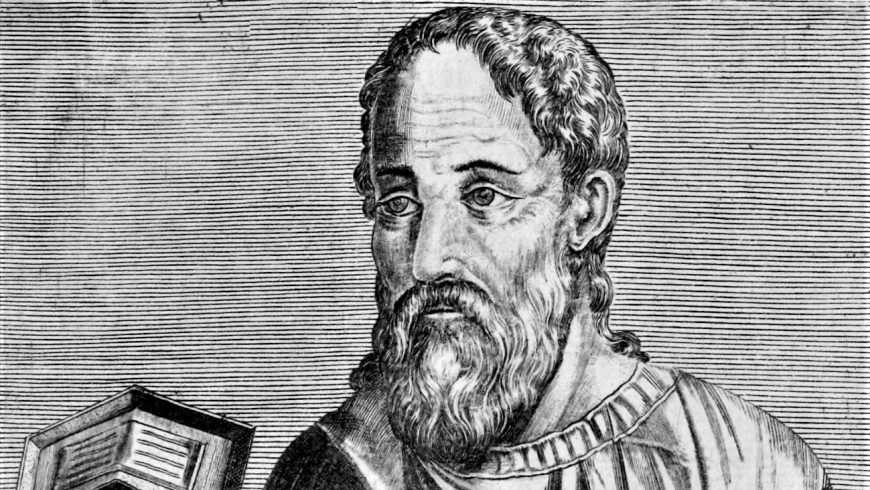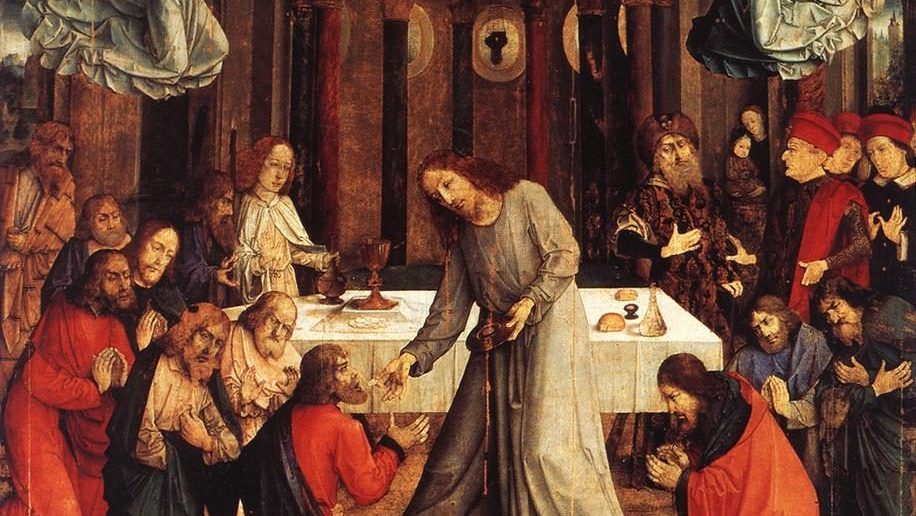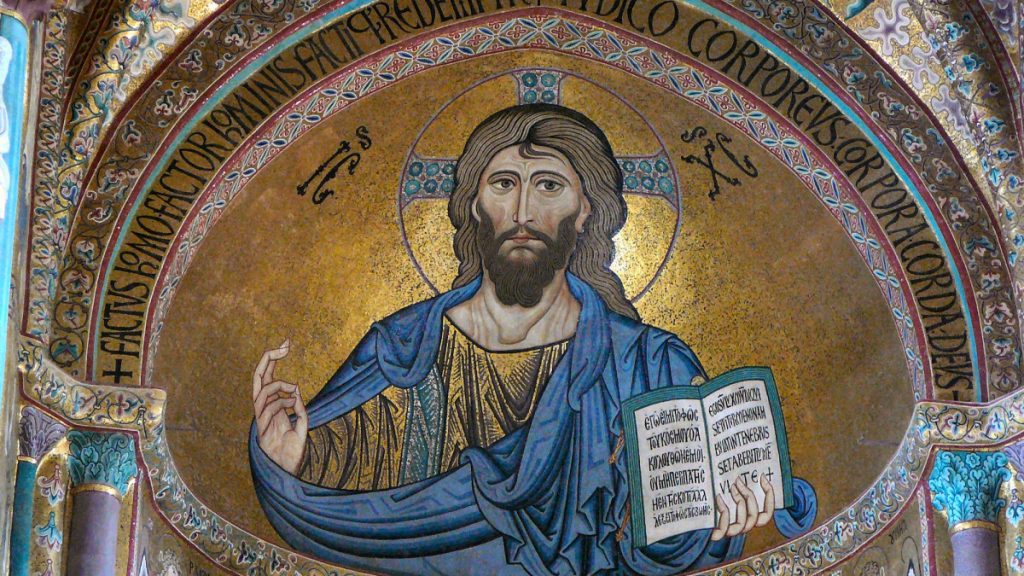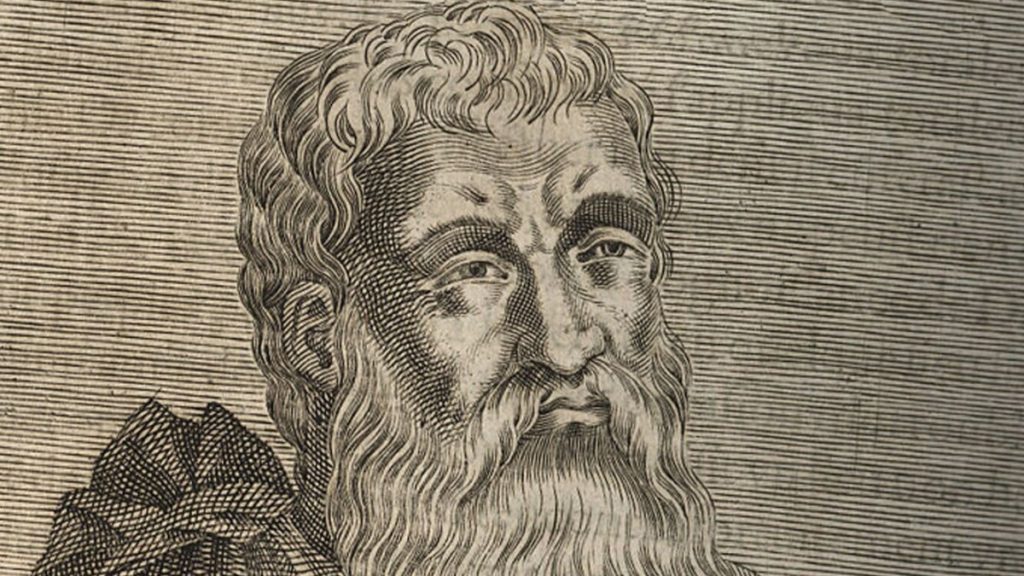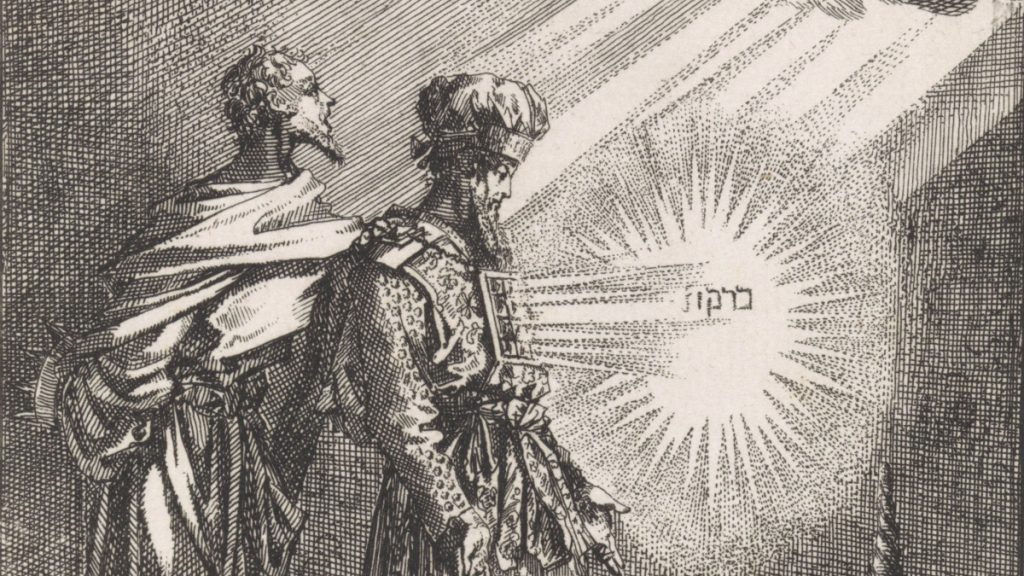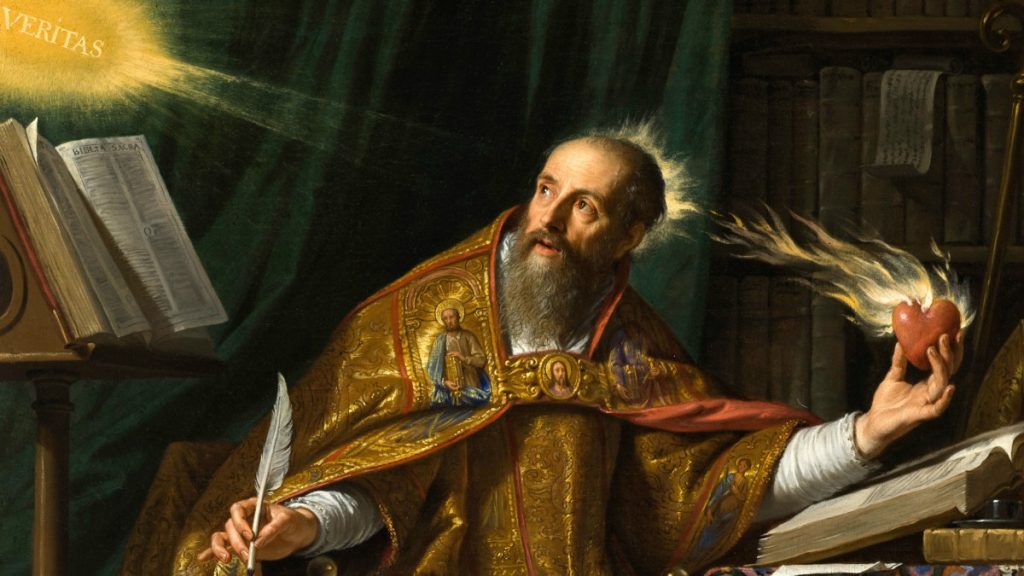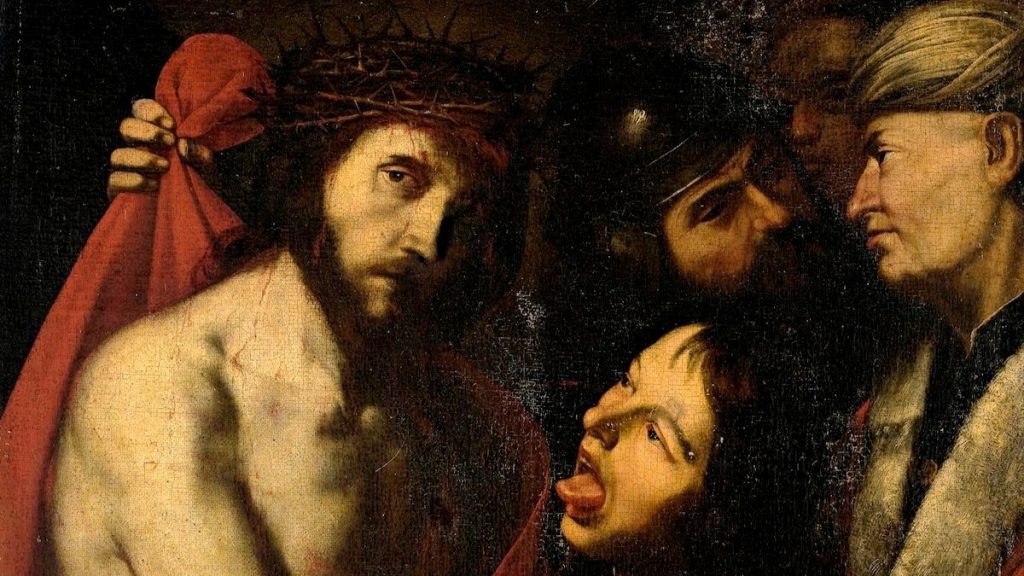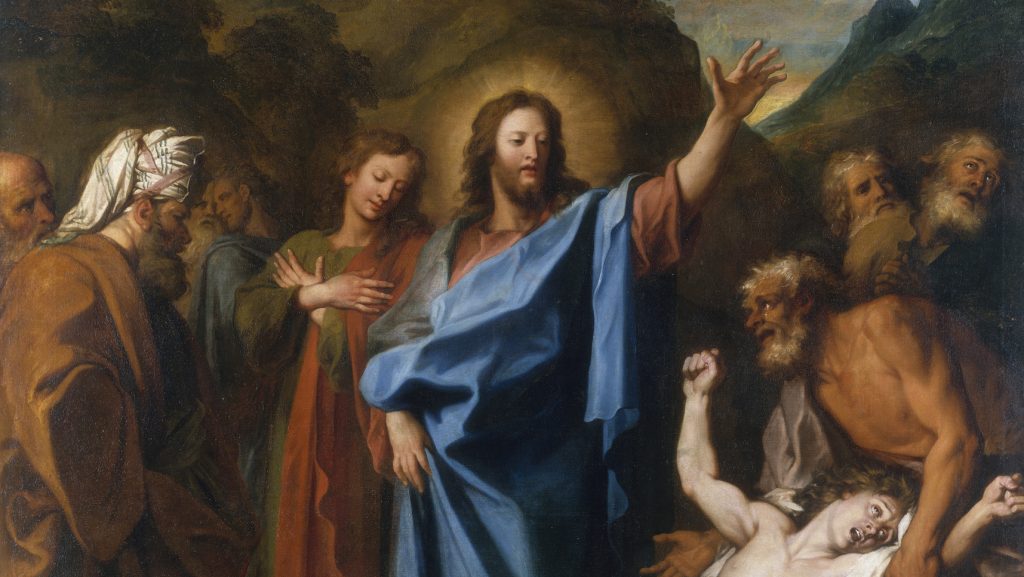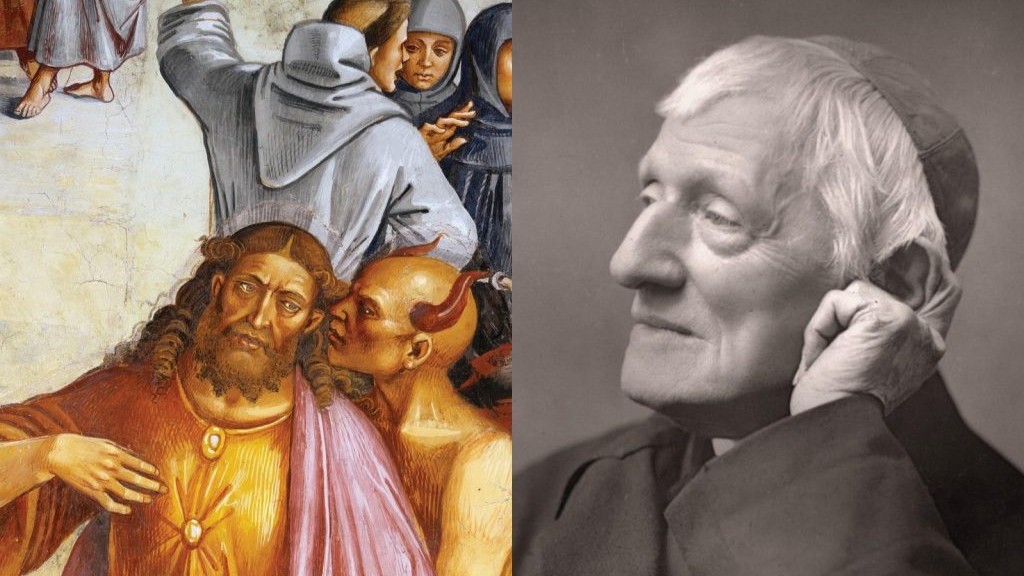(Updated July 13, 2025)
This Author Quote Archive collects pertinent quotes from the Ecclesiastical Writer, Eusebius of Caesarea.
Next to each quote are the Topic Quote Archives in which they are included.
This Quote Archive is being continuously updated as research continues. Quotes marked with “***” have not yet been organized into their respective Topic Quote Archives.
Books
Eusebius of Caesarea, Church History (c. 312-324)
- The Papacy and the Invincibility of the Church | Book 2, Ch. 15, §2; Ch. 25, §§5-8 | Book 3, Ch. 1, §2; Ch. 4, §§9-10 | Book 4, Ch. 1, §2; Ch. 19 | Book 5, Ch. 3, §4; Ch. 4, §§1-2; Ch. 23, §§1-2; Ch. 24, §§9-11, 18; Ch. 28, §3 | Book 10, §21
And Peter makes mention of Mark in his first epistle which they say that he wrote in Rome itself, as is indicated by him, when he calls the city, by a figure, Babylon, as he does in the following words: “The church that is at Babylon, elected together with you, salutes you; and so does Marcus my son” (1 Pet. 5:13).
(§5) Thus publicly announcing himself as the first among God’s chief enemies, he [Nero] was led on to the slaughter of the apostles. It is, therefore, recorded that Paul was beheaded in Rome itself, and that Peter likewise was crucified under Nero. This account of Peter and Paul is substantiated by the fact that their names are preserved in the cemeteries of that place even to the present day.
(§6) It is confirmed likewise by Caius, a member of the Church, who arose under [St. Pope] Zephyrinus, bishop of Rome. He, in a published disputation with Proclus, the leader of the Phrygian heresy, speaks as follows concerning the places where the sacred corpses of the aforesaid apostles are laid:
(§7) “But I can show the trophies of the apostles. For if you will go to the Vatican or to the Ostian way, you will find the trophies of those who laid the foundations of this church.”
(§8) And that they both suffered martyrdom at the same time is stated by Dionysius, bishop of Corinth, in his epistle to the Romans, in the following words: “You have thus by such an admonition bound together the planting of Peter and of Paul at Rome and Corinth. For both of them planted and likewise taught us in our Corinth. And they taught together in like manner in Italy, and suffered martyrdom at the same time.” I have quoted these things in order that the truth of the history might be still more confirmed.
Peter appears to have preached in Pontus, Galatia, Bithynia, Cappadocia, and Asia to the Jews of the dispersion. And at last, having come to Rome, he was crucified head-downwards; for he had requested that he might suffer in this way.
(§9) As to the rest of his followers, Paul testifies that Crescens was sent to Gaul [2 Tim. 4:10]; but Linus, whom he mentions in the Second Epistle to Timothy [2 Tim. 4:21] as his companion at Rome, was Peter’s successor in the episcopate of the church there, as has already been shown.
(§10) Clement also, who was appointed third bishop of the church at Rome, was, as Paul testifies, his co-laborer and fellow-soldier [Phil. 4:3].
At that time also [St. Pope] Alexander, the fifth in the line of succession from Peter and Paul, received the episcopate at Rome, after [St. Pope] Evarestus had held the office eight years.
In the eighth year of the above-mentioned reign [of Marcus Aurelius and Lucius Verus] [St. Pope] Soter succeeded [St. Pope] Anicetus as bishop of the church of Rome, after the latter had held office eleven years in all.
The followers of Montanus, Alcibiades, and Theodotus in Phrygia were now first giving wide circulation to their assumption in regard to prophecy—for the many other miracles that, through the gift of God, were still wrought in the different churches caused their prophesying to be readily credited by many—and as dissension arose concerning them, the brethren in Gaul set forth their own prudent and most orthodox judgment in the matter, and published also several epistles from the witnesses that had been put to death among them. These they sent, while they were still in prison, to the brethren throughout Asia and Phrygia, and also to [St. Pope] Eleutherus, who was then bishop of Rome, negotiating for the peace of the churches.
(§1) The same witnesses also recommended [St.] Irenaeus [of Lyon], who was already at that time a presbyter of the parish of Lyons, to the above-mentioned bishop of Rome, saying many favorable things in regard to him, as the following extract shows:
(§2) “We pray, father Eleutherus, that you may rejoice in God in all things and always. We have requested our brother and comrade Irenaeus to carry this letter to you, and we ask you to hold him in esteem, as zealous for the covenant of Christ. For if we thought that office could confer righteousness upon anyone, we should commend him among the first as a presbyter of the church, which is his position.”
(§1) A question of no small importance arose at that time. For the parishes of all Asia, as from an older tradition, held that the fourteenth day of the moon, on which day the Jews were commanded to sacrifice the lamb, should be observed as the feast of the Savior’s Passover [Easter]. It was therefore necessary to end their fast on that day, whatever day of the week it should happen to be. But it was not the custom of the churches in the rest of the world to end it at this time, as they observed the practice which, from apostolic tradition, has prevailed to the present time, of terminating the fast on no other day than on that of the resurrection of our Savior.
(§2) Synods and assemblies of bishops were held on this account, and all, with one consent, through mutual correspondence drew up an ecclesiastical decree, that the mystery of the resurrection of the Lord should be celebrated on no other but the Lord’s day, and that we should observe the close of the paschal fast on this day only…And there is also another writing extant of those who were assembled at Rome to consider the same question, which bears the name of Bishop [St. Pope] Victor…
(§3) And that which has been given above was their unanimous decision.
(§9) Thereupon Victor, who presided over the church at Rome, immediately attempted to cut off from the common unity the parishes of all Asia, with the churches that agreed with them, as heterodox; and he wrote letters and declared all the brethren there wholly excommunicate.
(§10) But this did not please all the bishops. And they besought him to consider the things of peace, and of neighborly unity and love. Words of theirs are extant, sharply rebuking Victor.
(§11) Among them was Irenaeus, who, sending letters in the name of the brethren in Gaul over whom he presided, maintained that the mystery of the resurrection of the Lord should be observed only on the Lord’s day. He fittingly admonishes Victor that he should not cut off whole churches of God which observed the tradition of an ancient custom [Quotes St. Irenaeus of Lyon’s letter]…
(§18) Thus Irenaeus, who truly was well named [the root word of his name meant “peace”], became a peacemaker in this matter, exhorting and negotiating in this way in behalf of the peace of the churches. And he conferred by letter about this mooted question, not only with Victor, but also with most of the other rulers of the churches.
[Quoting a work against the “heresy of Artemon” revived by Paul of Samosata] “For they [heretics] say that all the early teachers and the apostles received and taught what they now declare, and that the truth of the Gospel was preserved until the times of Victor, who was the thirteenth bishop of Rome from Peter, but that from his successor, Zephyrinus, the truth had been corrupted.
“Constantine Augustus to Chrestus, bishop of Syracuse. When some began wickedly and perversely to disagree among themselves in regard to the holy worship and celestial power and Catholic doctrine, wishing to put an end to such disputes among them, I formerly gave command that certain bishops should be sent from Gaul, and that the opposing parties who were contending persistently and incessantly with each other, should be summoned from Africa; that in their presence, and in the presence of the bishop of Rome, the matter which appeared to be causing the disturbance might be examined and decided with all care.
Eusebius of Caesarea, The Proof of the Gospel (after 314)
- The Canon of Scripture | Book 5, Introduction
- The Papacy and the Invincibility of the Church | Book 3, Ch. 5
- Homosexual and Gender-Confusing Behavior | Book 4, Ch. 10
(Book 3, Ch. 3)1 ***
He [Christ] taught us to believe that there are enemies of our race, flying in the air that surrounds the earth, and that there dwell with the wicked powers of demons, evil spirits and their rulers, whom we are taught to flee from with all our strength, even if they usurp for themselves without limit God’s Name and prerogatives; 123 | 124 and that they are to be shunned even more because of their warfare and enmity against God.
What, then, is the disproof? That if it was their [the Apostles’] aim to deceive, and to adorn their Master with false words, they would never have written the above accounts, neither would they have revealed to posterity that He was pained and troubled and disturbed in spirit, that they forsook Him and fled, or that Peter, the apostle and disciple who was chief of them all, denied Him thrice though untortured and 141 | 142 unthreatened by rulers. For surely if their aim was solely to present the more dignified side of their Master they would have had to deny the truth of such things, even when stated by others.
(Book 3, Ch. 7)3 ***
And not only did they [Christians during the age of martyrdom] struggle against visible enemies, but against the invisible, such evil demons and their rulers as haunt the nebulous air around the earth, whom also Christ’s true disciples by purity of life and prayer to God and by His Divine Name drove off, giving proofs of the miraculous signs, which of old were said to have been done by Him, and also, to eyes that could see, of His divine power still active.
Then, having forbidden all unlawful marriage, and all unseemly practice, and the union of women with women and men with men, he adds: “Do not defile yourself with any of these things; 181 | 182 for in all these things the nations were defiled, which I will drive out before you. And the land was polluted, and I have recompensed [their] iniquity upon it, and the land is aggrieved with them that dwell upon it” (Lev. 18:24).
And we must recognize that the sacred oracles include in the Hebrew much that is obscure both in expression and in meaning, and are capable of various interpretations–in Greek because of their difficulty. The Seventy Hebrews in concert have translated them together [the Septuagint], and I shall pay the greatest attention to them, because it is the custom of the Christian Church to use their work.
Eusebius of Caesarea, The Theophania, or On the Divine Manifestation of Our Lord and Savior Jesus Christ (c. 324-37)
For, immediately and at once, when He appeared in the world, those things which appertained to the ancient service of Demons, were undone by the overthrow as it were, of (some ruinous) war-engine; tidings announcing good things were preached to all nations, and God who is over all, the Propitiator of the children of men, was announced. The whole error of a plurality of gods was also overthrown, and all the operations of demons were forthwith cast aside. Men again were no more sacrificed; nor were the slaughterings of human beings, which from former times had ruined the world, (persevered in). Nor again, were there multitudes of Rulers, Princes, Tyrants, and Governors of 155 | 156 the people. Nor again, existed those things, on account of which wars, and the reduction of cities, had been set on foot in every city and place. On the contrary, one God was preached to all men; the one empire too of the Romans had extended itself over all; and the peaceless and uncompromising enmity, which had so long been the portion of the nations, came to an entire end.
Footnotes
- Eusebius of Caesarea, W.J. Ferrar, trans., The Proof of the Gospel, Volumes 1 and 2 (Eugene, OR: Wipf and Stock Publishers, 2001), 123-24. ↩︎
- Eusebius of Caesarea, W.J. Ferrar, trans., The Proof of the Gospel, Volumes 1 and 2 (Eugene, OR: Wipf and Stock Publishers, 2001), 141-42. ↩︎
- Eusebius of Caesarea, W.J. Ferrar, trans., The Proof of the Gospel, Volumes 1 and 2 (Eugene, OR: Wipf and Stock Publishers, 2001), 162. ↩︎
- Eusebius of Caesarea, W.J. Ferrar, trans., The Proof of the Gospel, Volumes I and II (Eugene, OR: Wipf and Stock Publishers, 2001), 181-82. ↩︎
- Eusebius of Caesarea, W.J. Ferrar, trans., The Proof of the Gospel, Volumes 1 and 2 (Eugene, OR: Wipf and Stock Publishers, 2001), 230. ↩︎
- Eusebius of Caesarea, Samuel Lee, trans., The Theophania, or Divine Manifestation of Our Lord and Savior Jesus Christ (Cambridge: Duncan and Malcolm, 1843), 155-56. ↩︎
